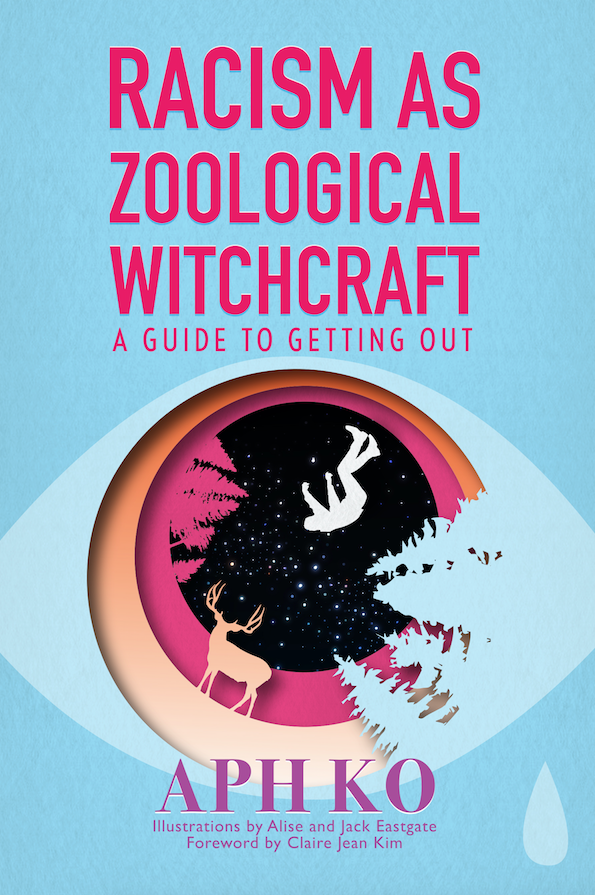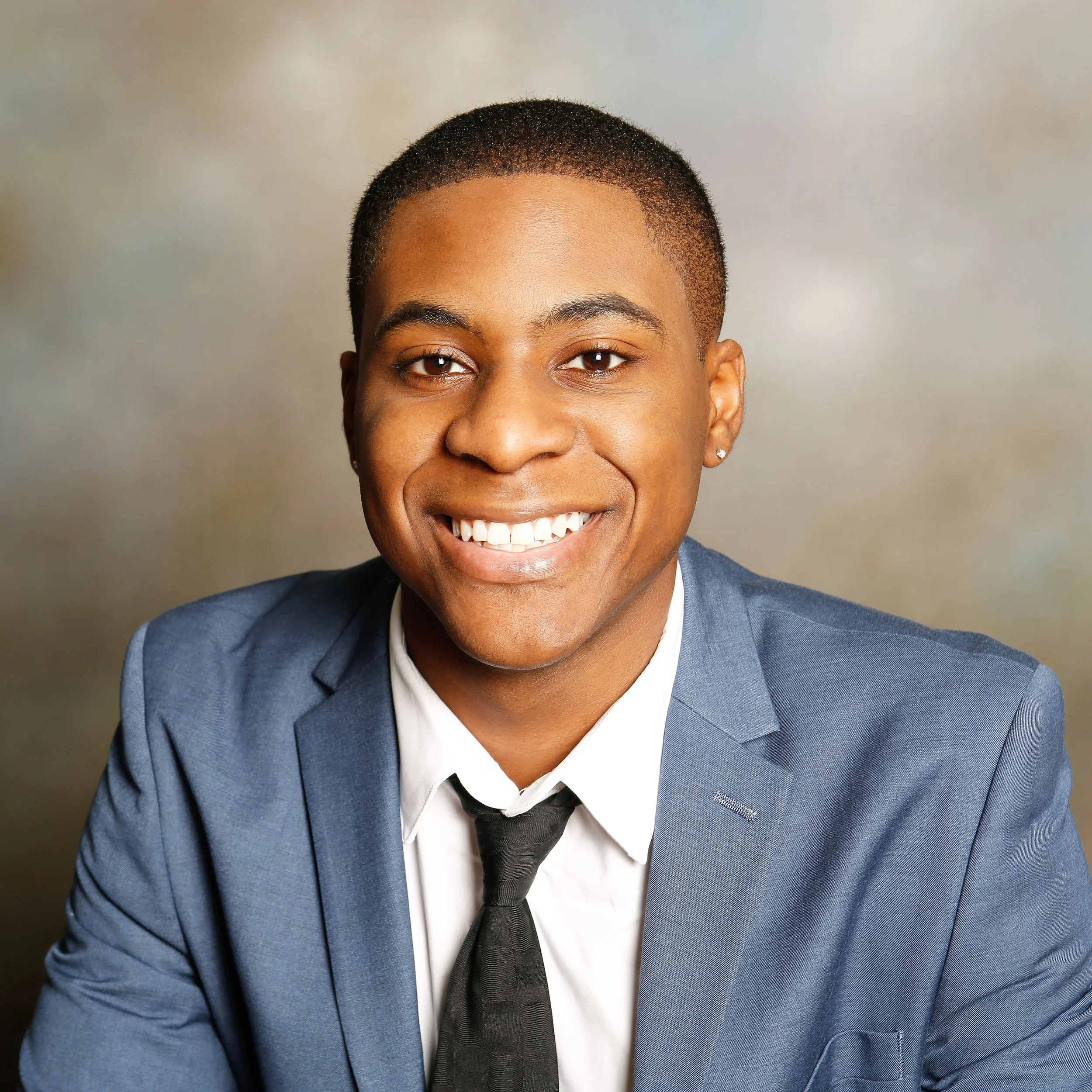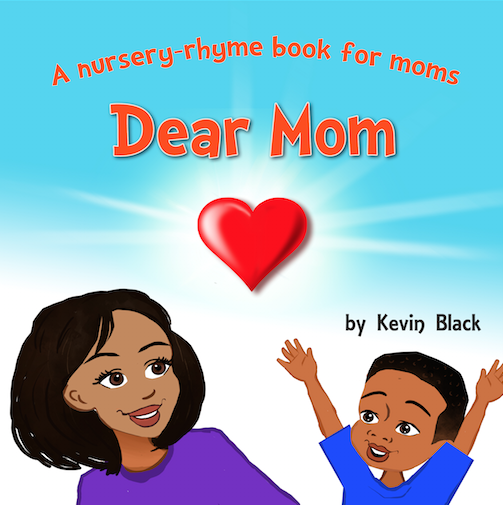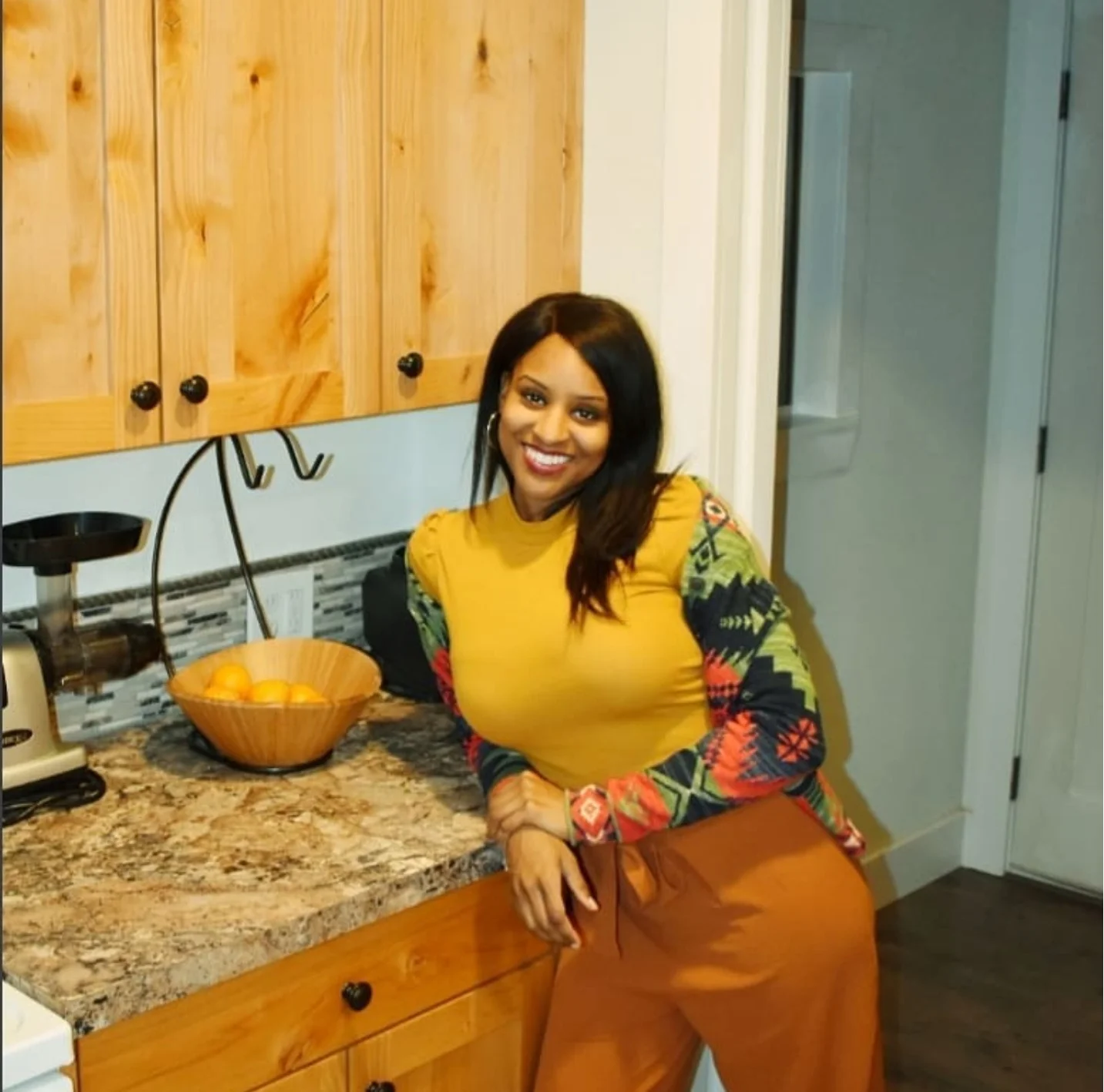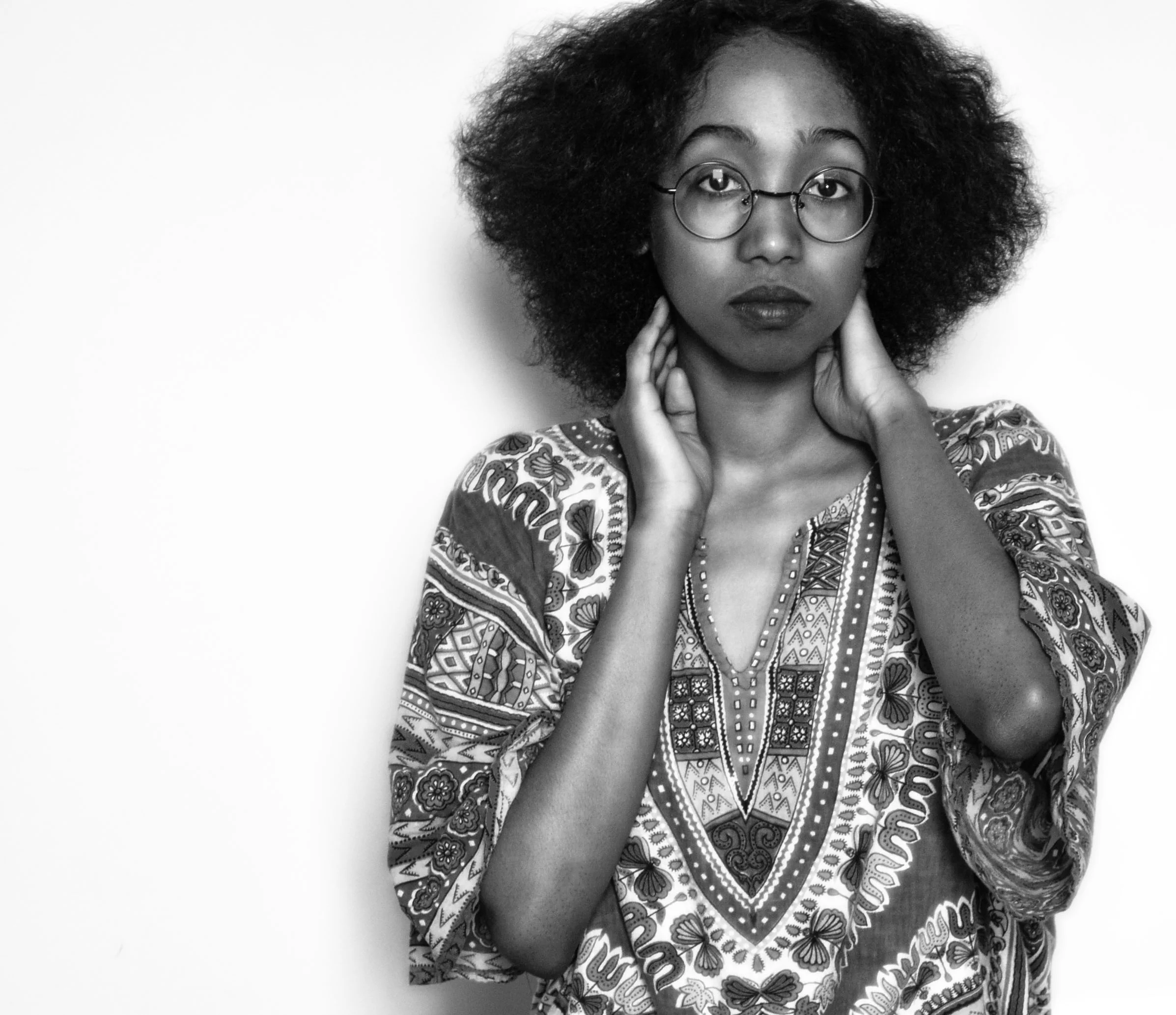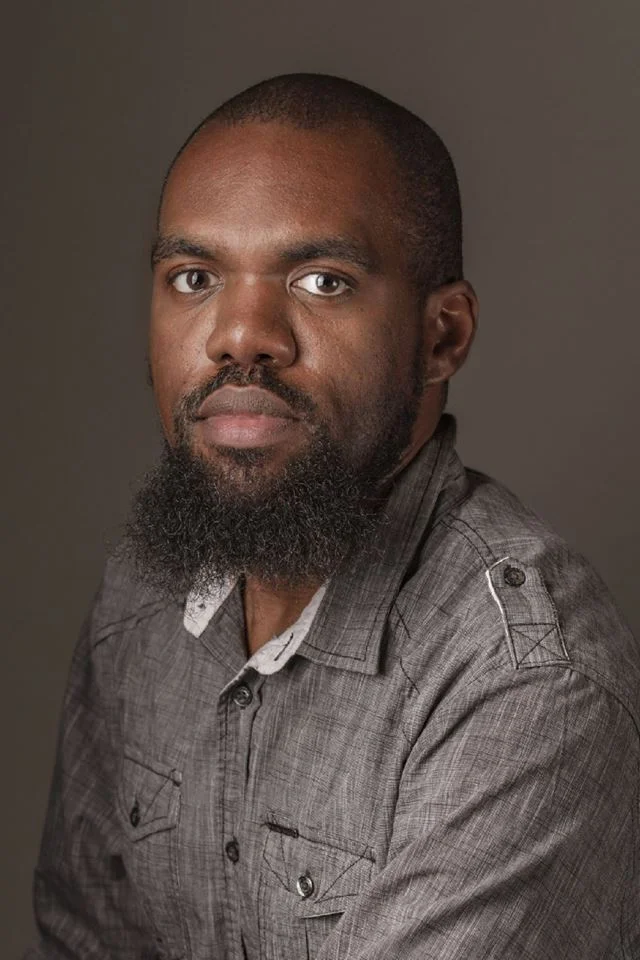You can purchase the kindle version now and pre-order the print version (which will be released later this month) on Amazon. Shout out to EastRand Studios for creating the cover and the illustrations.
In this scintillating combination of critical race theory, social commentary, veganism, and gender analysis, media studies scholar Aph Ko offers a compelling vision of a reimagined social justice movement marked by a deconstruction of the conceptual framework that keeps activists silo-ed fighting their various oppressions—and one another. Through a subtle and extended examination of Jordan Peele’s hit 2017 movie Get Out, Ko shows the many ways that white supremacist notions of animality and race exist through the consumption and exploitation of flesh. She demonstrates how a critical historical and social understanding of anti-Blackness can provide the pathway to genuine liberation. Highly readable, richly illustrated, and full of startling insights, Racism as Zoological Witchcraft is a brilliant example of the emerging discipline of Black veganism by one of its leading voices.
Praise for Racism as Zoological Witchcraft:
You have never read anything like Racism as Zoological Witchcraft: a Guide to Getting Out, which draws on history, critical race theory and pop culture to make compelling arguments about the impact of white supremacy both on race and our treatment of animals, especially given the dehumanizing nature of racism. Partially informed by Jordan Peele's Get Out, but drawing on a wide variety of research, Aph Ko helps us envision a world beyond our limited notions of 'intersectionality' to chart a course for a more humane future. - Tananarive Due, UCLA (The Sunken Place class), American Book Award winner
Racism as Zoological Witchcraft: A Guide to Getting Out is a sophisticated throwdown about how we can re-think anti-racist and animal rights activism(s) in a modality more nearly adequate to our profound entanglement in white supremacy’s comprehensive and hydra-headed monstrosity. Liquefying arcane academic theory in popular culture fluidity, Aph Ko offers a voice at once critical, generous, and polysemous. Her Afro-futurism relentlessly tracks the racialized animality of white cannibalism that eludes “sighting” in discrete discourses and intersectional advocacies. The multi-dimensional liberation she conjures demands a political hearing from anyone laboring for a different future. - James W. Perkinson, Professor of Social Ethics and Theology, Ecumenical Theological Seminary
Aph Ko’s Racism as Zoological Witchcraft is a fascinating, groundbreaking, thoughtful work that shows nuanced relationships between systems that historically dehumanize people of color and the consumption of animals as food. This transformative framework is as disturbing as it is enlightening. Aph Ko steadfastly demonstrates that veganism can be more than a matter of health and lifestyle - that plant based diets can be a radical practice in valuing the aligned rights of all living beings on Earth as well as a practice in dismantling systems on our planet that devalue humanity. - Ytasha L. Womack, author of Afrofuturism: The World of Black Sci Fi & Fantasy Culture
Aph Ko’s Racism as Zoological Witchcraft is an exciting hands-on theoretical guide to white supremacy’s grounding in “zoological racism,” a violent devouring of the bodies, souls, and lives of all it deems “animal,” both nonhuman and human. This “guide to getting out” also illustrates the dangers of supposedly liberatory movements that do not recognize “the animal” as the source of violence against animals as well as black people, ultimately providing its readers with the intellectual tools to imagine and enact “afro-zoological resistance” and liberation for all—what could be more important or inspiring?!? - Lindgren Johnson, author of Race Matters, Animal Matters: Fugitive Humanism in African America, 1840-1930
“Aph Ko's brilliant analysis on zoological racism and movement politics is transformative, challenging everything readers think they understand about racism. By framing white supremacy as a zoological witchcraft practice, she cuts across genres and offers something completely new, linking race and animals in a powerful book that is sure to wake readers up.” - lauren Ornelas, Executive Director, Food Empowerment Project
In Racism as Zoological Witchcraft: A Guide to Getting Out, Aph Ko has written an accessible argument rooted in theory that is imminently readable and will have broad appeal. In her argument for what she calls “epistemic ruptures,” Ko has created a compelling treatise against making current activist movements merge, arguing instead that our conception of “the animal,” as a label for consumable and disposable bodies, is tied to the legacy of racism that operates by virtue of zoological, white supremacist witchcraft. Using examples from popular culture – including Jordan Peele’s 2017 film Get Out – Ko examines the tension that exists between contemporary anti-racism and animal rights movements and argues for an examination of “raw” oppressions that can move the conversation beyond modern day liberation movements in ways that intersectionality has been unable to achieve. - Laura Wright, author of The Vegan Studies Project: Food, Animals, and Gender in the Age of Terror
Aph Ko’s work is at the center of a conceptual Big Bang. Theorizing beyond increasingly stale notions like diversity, speciesism, and intersectionality, she takes us back to the “raw oppression” itself. She guides our hands towards the one weapon that has characterized every true movement against oppression: recognizing the incomplete nature of our current justice movements. The scholarship is as rigorous as it is accessible and refreshingly inspiring. Her insights not only challenge all of us concerned with racial and animal oppression to imagine new pathways forward, but to recognize that much of Black thought from Frederick Douglas to Angela Davis already had gone beyond a vision of racial justice or human dignity to open toward a vision of freedom for all life. - Aaron S. Gross, Associate Professor, University of San Diego and the founder of Farm Forward



